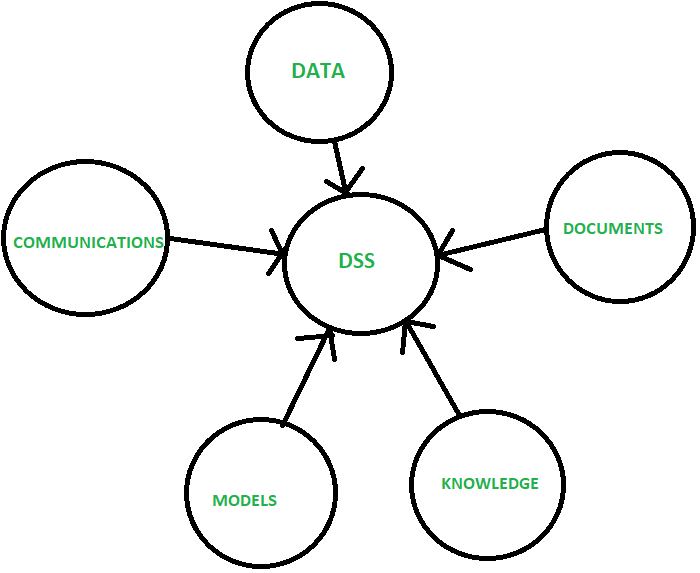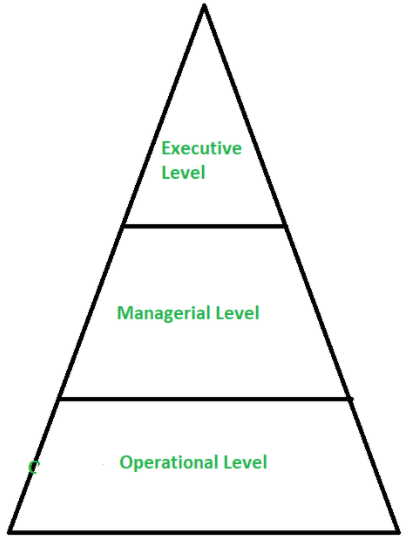1.决策支持系统(DSS):
这是一个基于计算机的系统,有助于决策过程。它是一个交互式,灵活且适应性强的计算机系统。它是专为支持非结构化管理问题的解决方案以改进决策制定而开发的。
DSS是一类特定的计算机信息系统,可支持业务和组织的决策活动。

好处 :
- 节省时间。
- 提高效率
- 降低成本
- 提高个人效率
- 它提高了决策者的满意度。
缺点:
- 信息超载
- 身份减少
- 过分强调决策。
2.行政支持系统(ESS)
ESS旨在合并有关外部事件(例如新税法或竞争对手)的数据,但它们也从内部MIS和DSS提取汇总信息。它们过滤,压缩和跟踪关键数据,强调减少了获取对管理人员有用的信息所需的时间和精力。它采用了最先进的图形软件,可以立即从许多来源向高级主管提供图形和数据。

好处 :
- 增强个人思维。
- 易于高层管理人员使用。
- 更好的报告系统。
- 改善办公自动化。
缺点:
- 取决于系统。
- 功能受限。
- 信息超载。
DSS和ESS之间的区别:
| DSS | ESS |
|---|---|
| It stands for Decision Support System. | It stands for Executive Support System. |
| It analyzes unanticipated situations using data. | It presents summary information in a flexible, easy to use, graphical format, designed for top executives. |
| It provides detailed information. | It provides precise information. |
| It uses internal data. | It uses internal and external data both. |
| It supports structured and semi-structured data both. | It supports structured problems. |
| It is for middle management. | It is for top level management. |